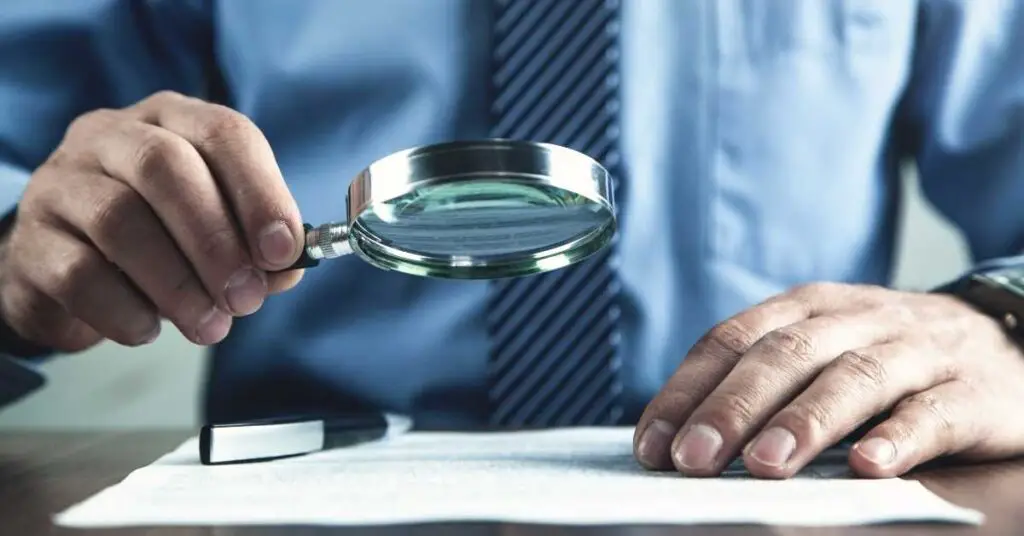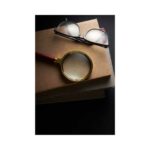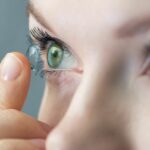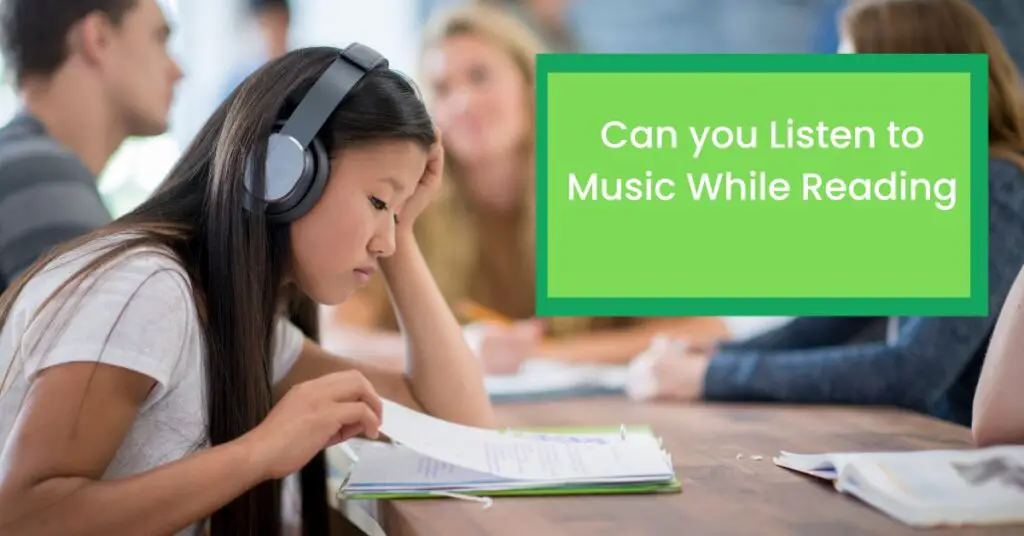A magnifying glass is a type of lens that helps you see things more clearly. Magnifying glasses are often used to read small print, because they make the text bigger. Reading glasses are also a type of magnifying glass, but they are designed specifically for people who have trouble seeing close-up. While magnifying glasses and reading glasses are both useful tools, they are not exactly the same thing.
No, magnifying glasses are not the same as reading glasses. The main difference between the two is that readers are a magnifier over your uncorrected vision. In other words they just enlarge the print. They don’t sharpen your vision.
So if you have trouble reading because everything looks blurry, reading glasses will not help. You need to see an eye doctor and get a prescription for corrective lenses. However, if you can read just fine but everything looks small, then magnifying glasses may help. Many stores that sell reading glasses also sell magnifying glasses. Or you can purchase them online or at a drug store. Be sure to choose the right strength. Too much magnification can actually make things more difficult to see. If you’re not sure what strength to get, start with a lower number and work your way up until you find something that works for you.
What are magnifying glasses and reading glasses used for?
Magnifying glasses and reading glasses are used for a variety of purposes, including seeing small text or fine details, improving vision in low light conditions, and magnifying objects. Both types of lenses can be helpful tools when working on detailed tasks or hobbies like crafts, sewing, or painting. Additionally, some people use magnifying glasses to look at their skin closely in order to detect any potential health concerns.
Reading glasses are also often recommended for seniors who have difficulty focusing on close-up objects. Ultimately, whether you need a magnifying glass or reading glasses will depend on your specific vision needs and preferences. So if you’re not sure which type of lens is right for you, it’s best to consult an eye doctor for advice.
The difference between magnifying glasses and reading glasses
Magnifying glasses and reading glasses may look similar, but they serve different purposes. Magnifying glasses are used to enlarge small objects so that they can be seen more easily. Reading glasses, on the other hand, are used to correct vision problems such as nearsightedness. Both types of glasses use lenses to magnify objects, but the lenses in magnifying glasses are usually much stronger than those in reading glasses. As a result, magnifying glasses can make objects appear much larger than they actually are, while reading glasses simply help people see clearly.
When choosing between magnifying glasses and reading glasses, it is important to consider what you will be using them for. If you need to enlarge small objects, a magnifying glass is the best choice. However, if you have trouble seeing things that are far away, reading glasses will help you see more clearly.
When should you use a magnifying glass instead of a reading glass?
If you find yourself frequently holding books or other printed materials at arm’s length in order to see them clearly, it may be time to invest in a reading glass. Reading glasses are designed for people with presbyopia, a condition that results in the loss of near vision.
Unlike magnifying glasses, which provide a small area of magnification, reading glasses correct vision over the entire lens. As a result, they are much more efficient for reading and other close-up tasks. However, magnifying glasses can be useful for tasks that require more precise vision, such as threading a needle or examining a small object.
In general, if you find yourself needing to hold things closer than about 14 inches from your eyes in order to see them clearly, a reading glass is likely to be the better choice.
Where can you buy magnifying glasses and reading glasses if you need them?
Magnifying glasses and reading glasses are available at most drug stores, optical shops, and online retailers. If you’re not sure which type of lens is right for your vision needs, it’s best to consult an eye doctor or other healthcare professional for advice. Some insurance providers may also cover the cost of these lenses if they are deemed medically necessary. Regardless of where you purchase them, make sure to choose high-quality lenses from a reputable manufacturer in order to get the best results.
Tips for using magnifying glasses and reading glasses safely and effectively:
1. Prior to using magnifying glasses or reading glasses, it is important to consult an eye doctor or other healthcare professional in order to determine the right type of lens for your needs.
2. When working with magnifying glasses, make sure to wear protective goggles or other safety equipment as needed to avoid potential injuries from flying debris.
3. Always hold the glass lens at a comfortable distance and angle when looking through it, and take care not to strain your eyes while doing so.
4. If you are having trouble focusing on objects through a magnifying glass, try adjusting the lighting conditions or moving to brighter areas where you can see more clearly.
5. Finally, remember that both types of lenses are delicate and should be handled carefully at all times. Store them in a safe place when not in use, and clean them regularly to keep them in good condition.
Conclusion
In conclusion, magnifying glasses and reading glasses are both useful tools for people with vision problems. While they may appear similar, they have different purposes and should not be used interchangeably. If you need help choosing which type of lens is right for your needs, it’s best to consult an eye doctor or other healthcare professional. With the right lenses, you can enjoy clearer vision and more comfortable daily tasks!
Overall, it is important to consider your specific vision needs when selecting between a magnifying glass or reading glasses. Whether you opt for one or the other will depend on what tasks you need to perform most often. So if you’re having trouble seeing small text or close-up objects, a magnifying glass may be the right choice. But if you find yourself straining to read distant text or struggle with near vision, a pair of reading glasses may be just what you need. With the right lenses and proper care, you can enjoy clear vision for years to come!
FAQs
What is the difference between magnifying glasses and reading glasses?
Magnifying glasses are designed to provide a clear and magnified view of small objects, while reading glasses are specifically meant to help people see better when reading or doing close-up work.
Do I need reading glasses?
If you find it difficult to see close-up objects or text, especially if you are over the age of 40, you may need reading glasses.
Are readers and prescription reading glasses the same?
No, readers are over-the-counter glasses with a specific magnification strength, while prescription reading glasses are customized to an individual’s vision correction needs and are prescribed by an optometrist or ophthalmologist.
Can reading glasses help with vision correction for close-up work?
Yes, reading glasses can help correct vision for near objects and tasks such as reading, sewing, or using electronic devices.
Why do I suddenly need reading glasses with -1 magnification?
The need for reading glasses with -1 magnification typically arises around age 40, when many people begin to experience presbyopia, a natural aging process that affects near vision. This condition makes it difficult to focus on close-up tasks, such as reading or using electronic devices.
What is the term “magnification” referring to in relation to reading glasses?
Magnification refers to the level of optical power in reading glasses, commonly measured in diopters. A reading glass with -1 magnification has a power of -1 diopter, which helps to compensate for the reduced ability of the eyes to focus on close-up objects due to presbyopia.












